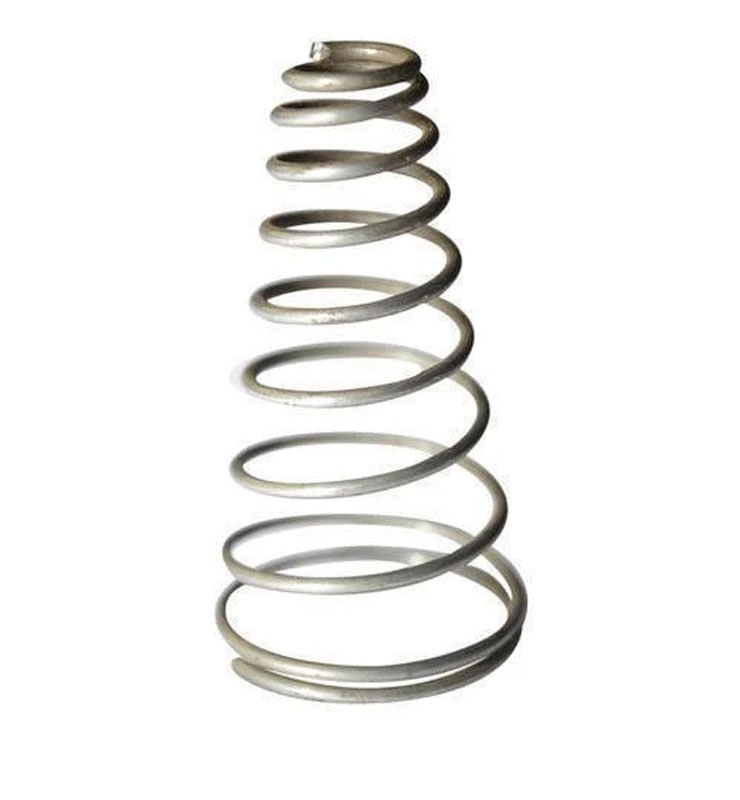
Taper Form Springs
A tapered spring (often referred to as a taper spring) is a type of spring whose coils gradually change in diameter along its length. This means that the diameter of the spring wire decreases or increases in a tapering fashion, rather than maintaining a consistent thickness throughout.
Key Characteristics of Taper Springs
- Tapered Design: The defining feature of a taper spring is its tapered shape, where the coils might be wider at one end and narrower at the other. This tapering can be uniform or have a specific design to suit a particular application.
- Functionality: Tapered springs are designed to handle loads in a way that the force distribution is more efficient, especially when used in applications where the force needs to be absorbed gradually across the spring's length.
- Material: Taper springs can be made from various materials, including high-carbon steel, stainless steel, or alloy steels, depending on the strength and flexibility required.
Applications
- Automotive: In suspension systems or to absorb shock in vehicles.
- Industrial: Used in machinery where load needs to be distributed evenly or in mechanisms with varying force requirements.
- Tools & Equipment Often found in devices requiring a specific type of pressure or tension distribution, such as in clutches or valves.
How It Works
The tapering of the spring's coils allows for a more gradual or uniform force
application and is particularly useful in applications where a constant force is not
needed or where the spring is expected to handle varied loads across its length.
In summary, a taper spring is a spring with a varying diameter along its length,
allowing it to handle specific applications that require gradual changes in force,
load distribution, or space efficiency.

